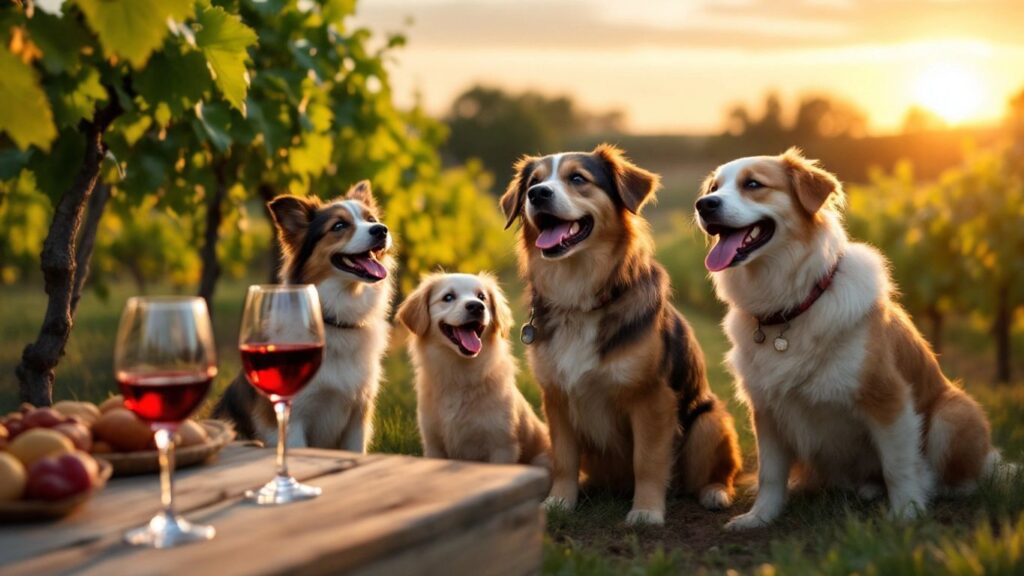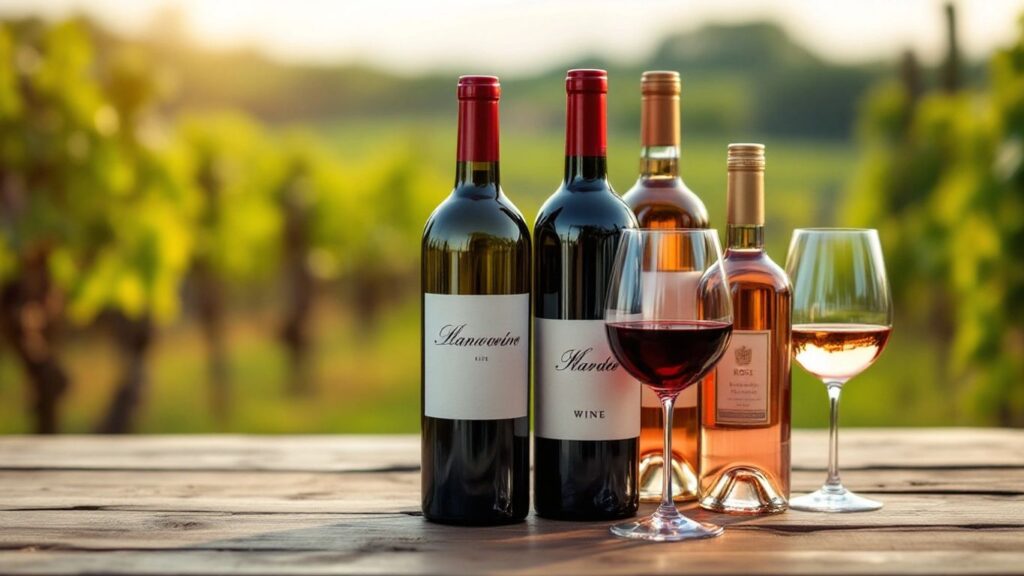Biodynamic wines are gaining popularity among health-conscious drinkers. These wines are made using special farming methods that focus on the health of the soil and plants. Many people think they taste better and are better for you than regular wines.
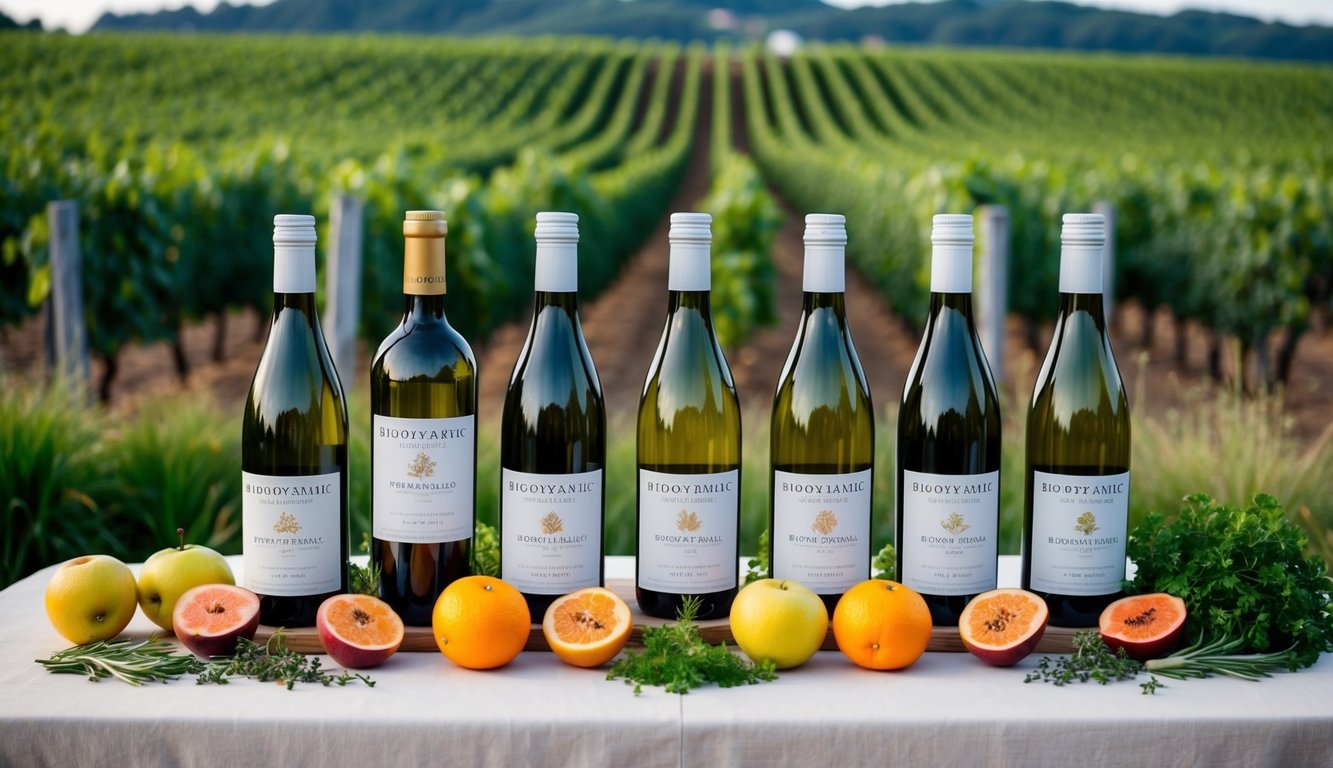
Biodynamic wines may have more antioxidants and fewer additives than conventional wines. This can be good news if you want to enjoy a glass of wine while staying mindful of your health.
In this article, we’ll look at 8 great biodynamic wine options for those who care about what’s in their glass.
1) Montinore Estate Borealis
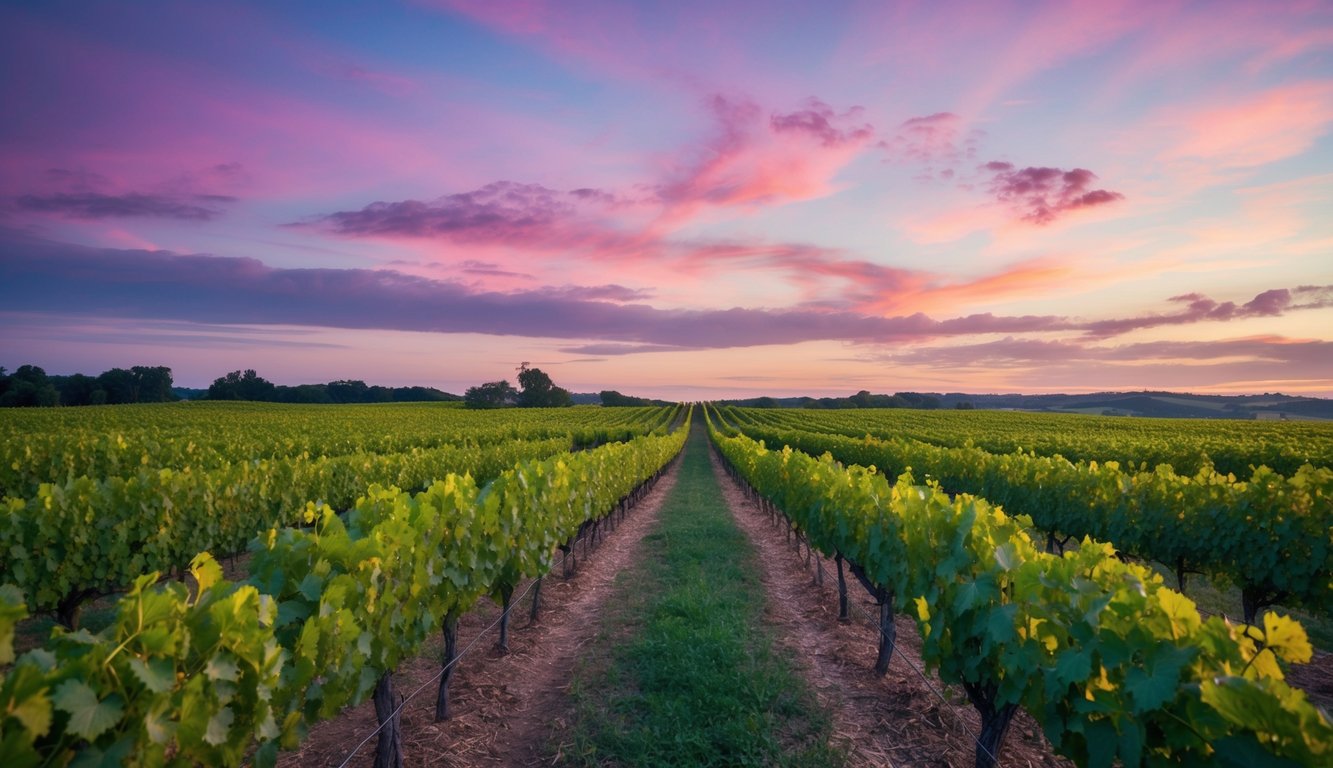
Montinore Estate Borealis is a unique white blend that stands out among biodynamic wines. This Oregon-made wine combines four grape varieties: Pinot Gris, Riesling, Müller-Thurgau, and Gewürztraminer.
The result is a fragrant and flavorful wine that appeals to health-conscious drinkers. You’ll notice aromas of fresh flowers and tropical fruit when you first open the bottle.
Montinore Estate takes pride in its certified organic and biodynamic practices. With over 120 acres of vineyards, they’ve been committed to sustainable winemaking for nearly four decades.
This white blend offers a taste profile that’s both complex and approachable. You’ll detect notes of peach, yellow apple, and pineapple, along with bright citrus flavors.
Borealis has a slightly sweet finish that balances its crisp acidity. It’s an excellent choice for those who enjoy off-dry wines with a touch of sweetness.
At 11.5% alcohol content, Borealis is a lighter option for health-conscious wine enthusiasts. You can enjoy its vibrant flavors without worrying about excessive alcohol intake.
2) Cowhorn Spiral 36
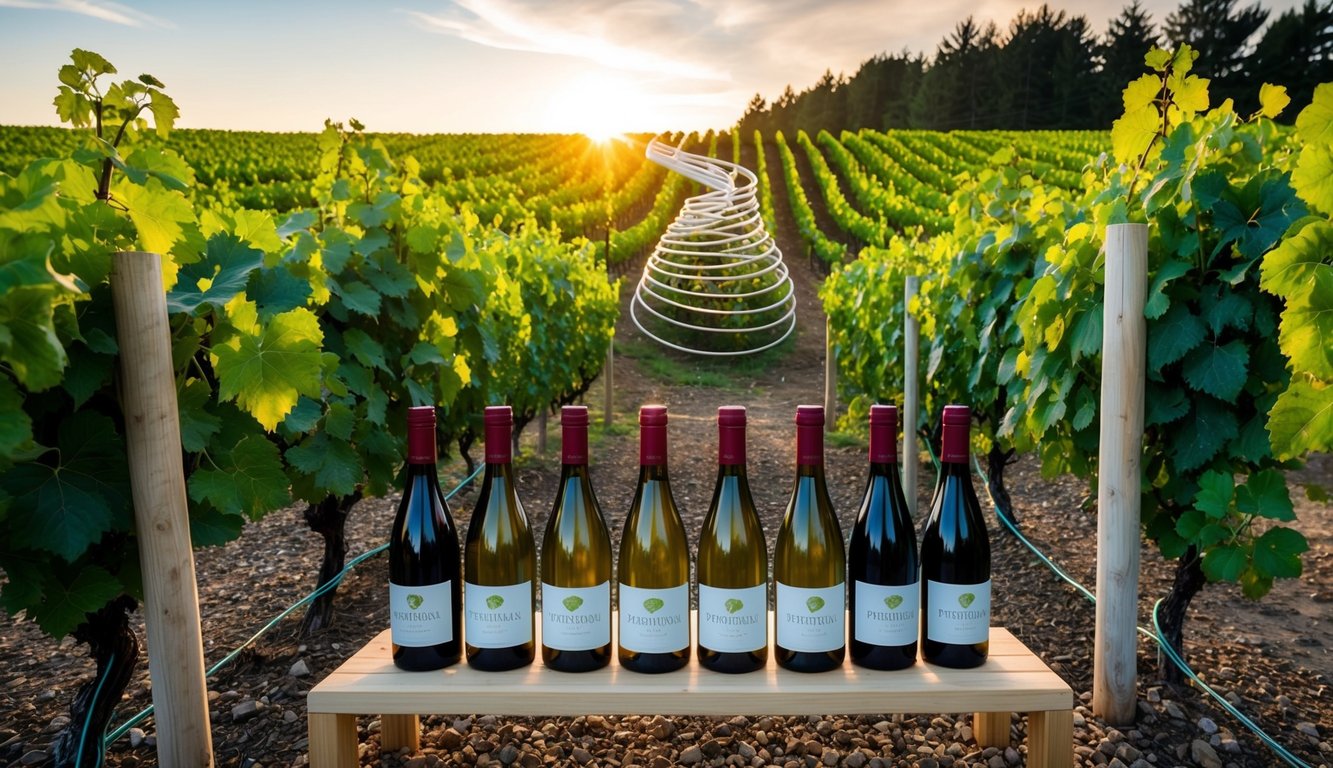
Cowhorn Spiral 36 is a biodynamic white wine blend that will delight your senses. This wine comes from the Applegate Valley in Oregon, where Cowhorn Vineyard crafts exceptional wines using sustainable practices.
The Spiral 36 blend changes slightly each year, but it typically includes Viognier, Marsanne, and Roussanne grapes. These Rhône varieties work together to create a complex and flavorful wine.
When you sip Cowhorn Spiral 36, you’ll notice intense aromas of citrus and white flowers. The flavors are equally impressive, with notes of lemon, apple, and white peach dancing on your palate.
This wine’s texture is another highlight. It’s rich and full-bodied, with a refreshing balance that keeps you coming back for more. The finish often includes subtle bitter botanicals, adding depth to the experience.
Cowhorn’s commitment to biodynamic farming means you can enjoy this wine knowing it’s made with care for the environment. Their 16-acre vineyard is Demeter-certified, ensuring the highest standards of biodynamic practices.
3) Frey Vineyards Biodynamic Field Blend
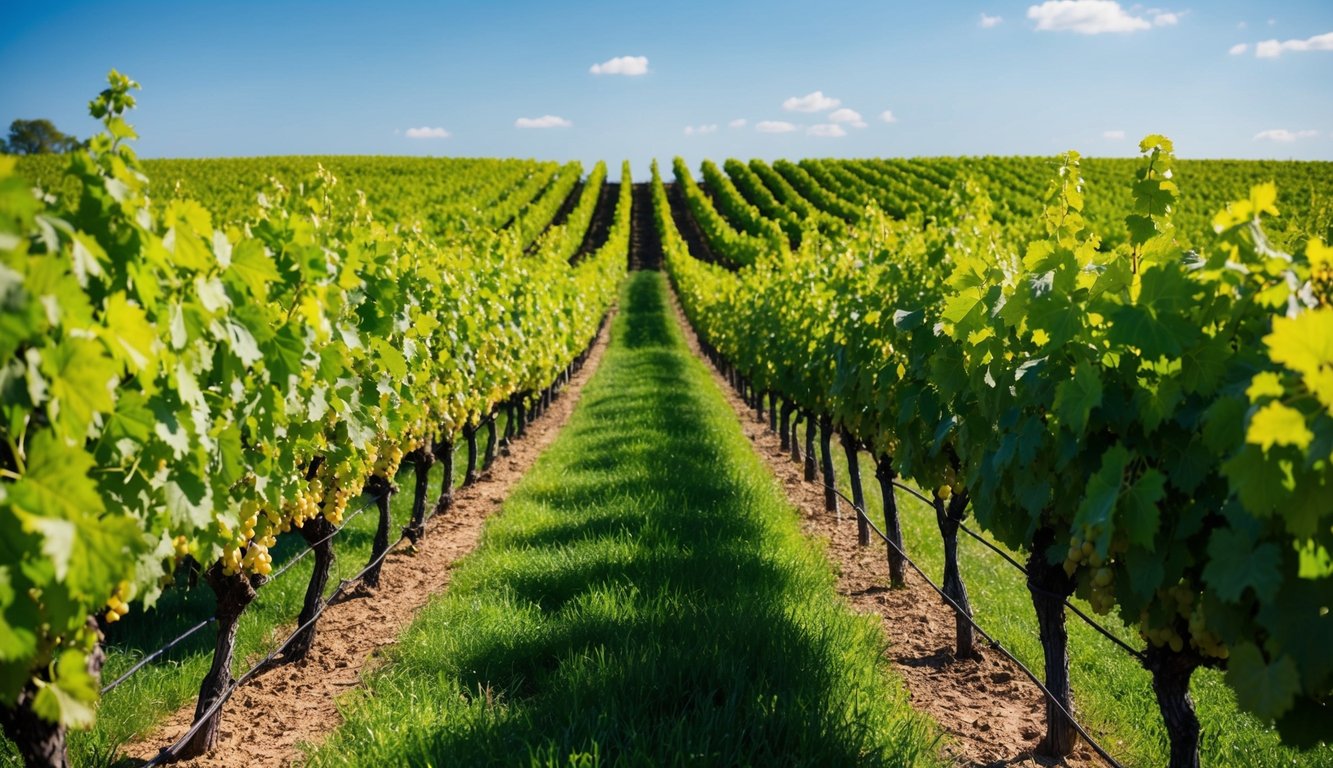
Frey Vineyards offers a unique Biodynamic Field Blend that’s perfect for health-conscious wine lovers. This organic red blend combines various grape varieties grown together in the same vineyard.
The wine boasts a subtle nose of red currant with hints of star anise and rose hips. You’ll enjoy a rustic mix of rich berry flavors and hearty tannins that reflect the terroir of Mendocino County.
With an alcohol content of 13.7%, this blend offers a balanced and easily enjoyable drinking experience. You’ll notice flavors of black cherry, black plum, chocolate, clove, and anise in every sip.
Frey’s commitment to biodynamic practices means you’re getting a wine free from synthetic pesticides and fertilizers. This approach enhances the wine’s purity and connection to its environment.
Try pairing this versatile red with gruyere cheese fondue and crusty baguette for a delightful culinary experience. The wine’s rich and succulent profile complements earthy flavors beautifully.
4) Quivira’s Alder Grove Sauvignon Blanc
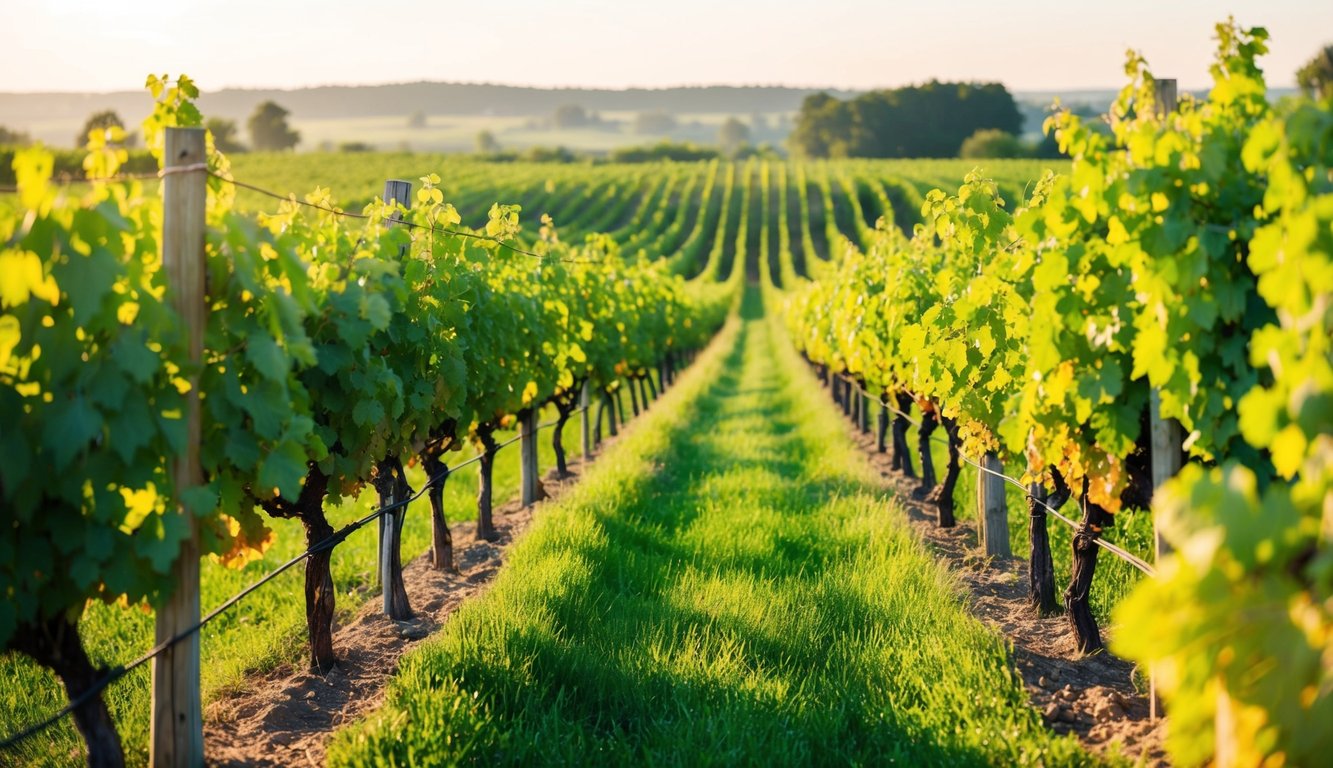
If you’re looking for a crisp, refreshing white wine with a focus on sustainability, Quivira’s Alder Grove Sauvignon Blanc is an excellent choice. This wine comes from the Dry Creek Valley in California, known for its ideal climate for growing Sauvignon Blanc grapes.
Quivira Vineyards takes pride in their organic farming practices. The Alder Grove Sauvignon Blanc is made primarily from grapes grown in their CCOF-certified organic home vineyard, Wine Creek Ranch.
You’ll notice the wine’s vibrant flavors and zesty acidity, typical of high-quality Sauvignon Blanc. The taste profile often includes notes of grapefruit, citrus, and lime, making it a refreshing choice for warm days.
By choosing this wine, you’re not only treating yourself to a delicious beverage but also supporting environmentally conscious winemaking practices. Quivira’s commitment to organic farming helps ensure a healthier ecosystem in their vineyards.
5) Paolo Bea Rosso de Véo
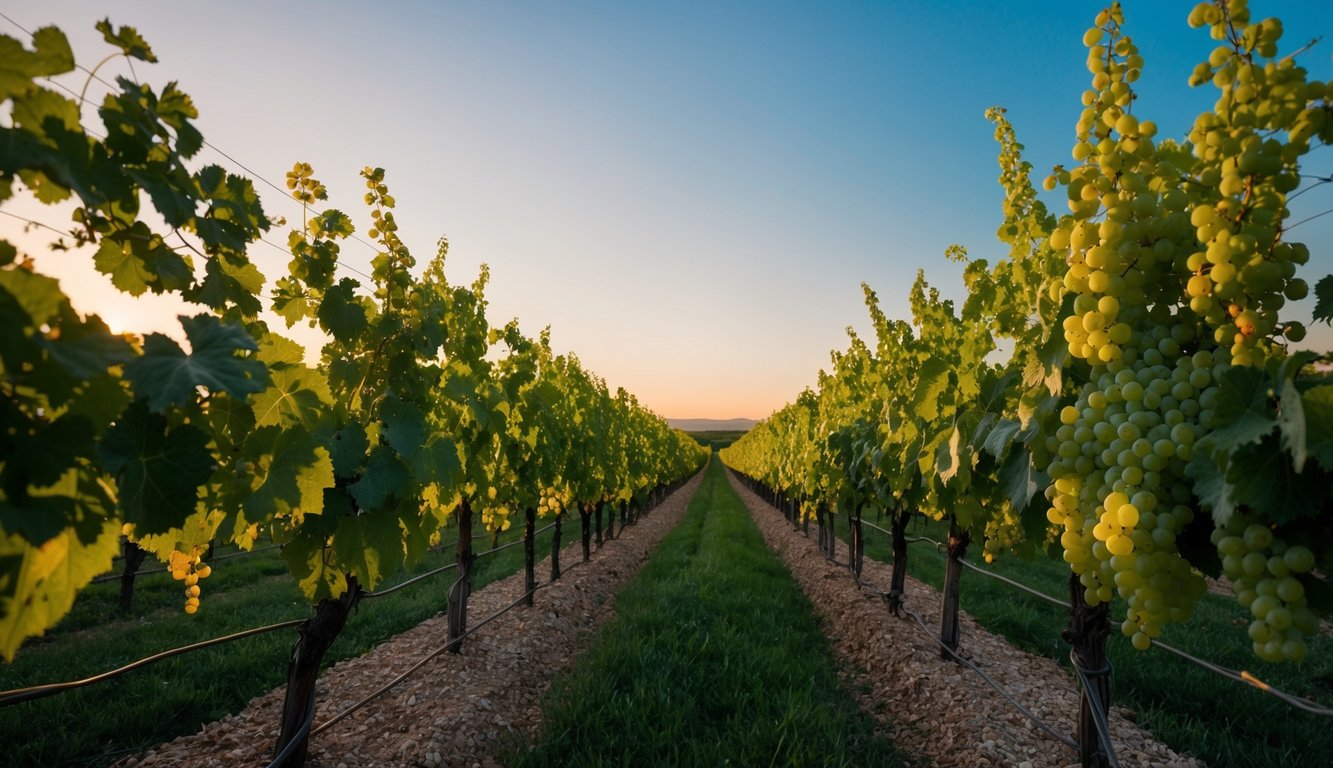
Paolo Bea’s Rosso de Véo is a remarkable biodynamic wine from Umbria, Italy. This 100% Sagrantino offering showcases the winery’s commitment to natural winemaking practices.
You’ll find this wine comes from younger Sagrantino vines, mainly in the Cerrete vineyard. This plot sits at the highest point in Montefalco, between 1,300 and 1,500 feet above sea level.
The Rosso de Véo presents a dark and brooding character. When you taste it, you’ll notice spicy edges and a core of black and red fruits. The wine also offers hints of wet soil and a ripe, tannic finish.
Paolo Bea’s high standards shine through in this wine. While other winemakers might use these grapes for Montefalco Sagrantino, the Bea family declassifies them as Umbria Rosso.
You’ll appreciate the elegance of recent vintages, which show a slow build of tannins. This reminds you of Sagrantino’s power and ability to age well.
As a health-conscious drinker, you can enjoy this unfiltered, natural red wine. It reflects the Bea family’s dedication to traditional, biodynamic winemaking methods.
6) Domaine Huet Vouvray Le Mont
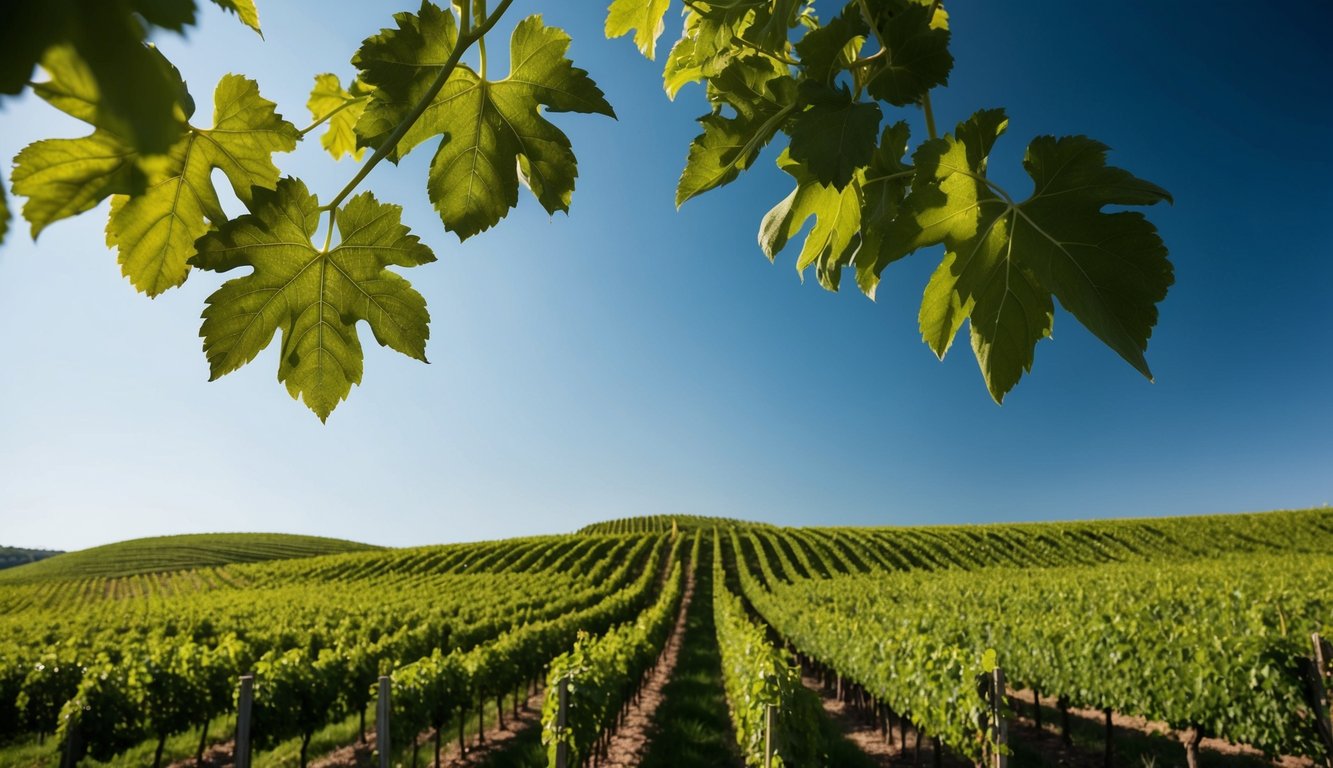
Domaine Huet is a renowned winery in the Loire Valley of France. They make exceptional Vouvray wines from Chenin Blanc grapes.
The Le Mont vineyard is one of Domaine Huet’s prized sites. It produces wines with incredible aging potential and complex flavors.
Huet has practiced biodynamic farming since 1990. This natural approach helps create wines that truly express their terroir.
When you taste Le Mont Sec, you’ll notice crisp apple and quince flavors. The wine has a beautiful refined quality that showcases its pedigree.
Le Mont wines can age for decades. As they mature, they develop rich honey and beeswax notes while maintaining vibrant acidity.
You can pair Le Mont Sec with seafood, poultry, or creamy cheeses. Its versatility makes it a great choice for many meals.
By choosing Domaine Huet, you’re supporting a winery committed to sustainable practices. Their dedication to biodynamics helps preserve the land for future generations.
7) Château Maris La Touge
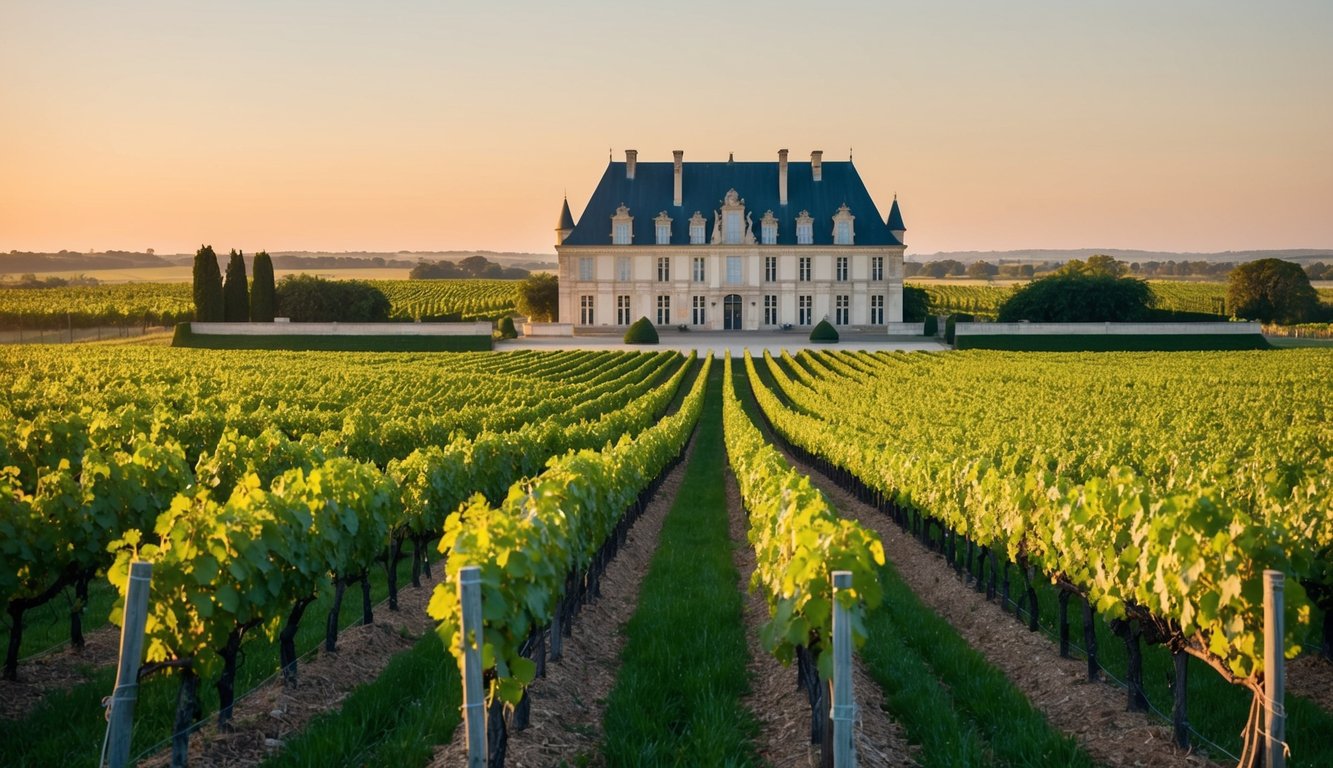
Château Maris La Touge is a biodynamic red wine you’ll want to try. It’s made from a blend of Syrah, Grenache, and Carignan grapes grown in the Minervois region of France.
You’ll love the full-bodied richness of La Touge. It has smooth tannins and well-balanced acidity. The wine offers flavors of dark fruits like blackcurrants and blackberries.
When you sip La Touge, you’ll notice hints of spices such as cloves and cinnamon. These complex flavors come from aging the wine for 16 months in concrete and egg-shaped vats.
Château Maris uses environmentally friendly practices. The entire estate is certified biodynamic by Demeter and Biodyvin. They make their own compost from local animal manure to fertilize the vines.
You can enjoy La Touge now or cellar it for 3-7 years. This wine shows that biodynamic practices can produce excellent, flavorful wines.
8) Benziger Tribute Estate
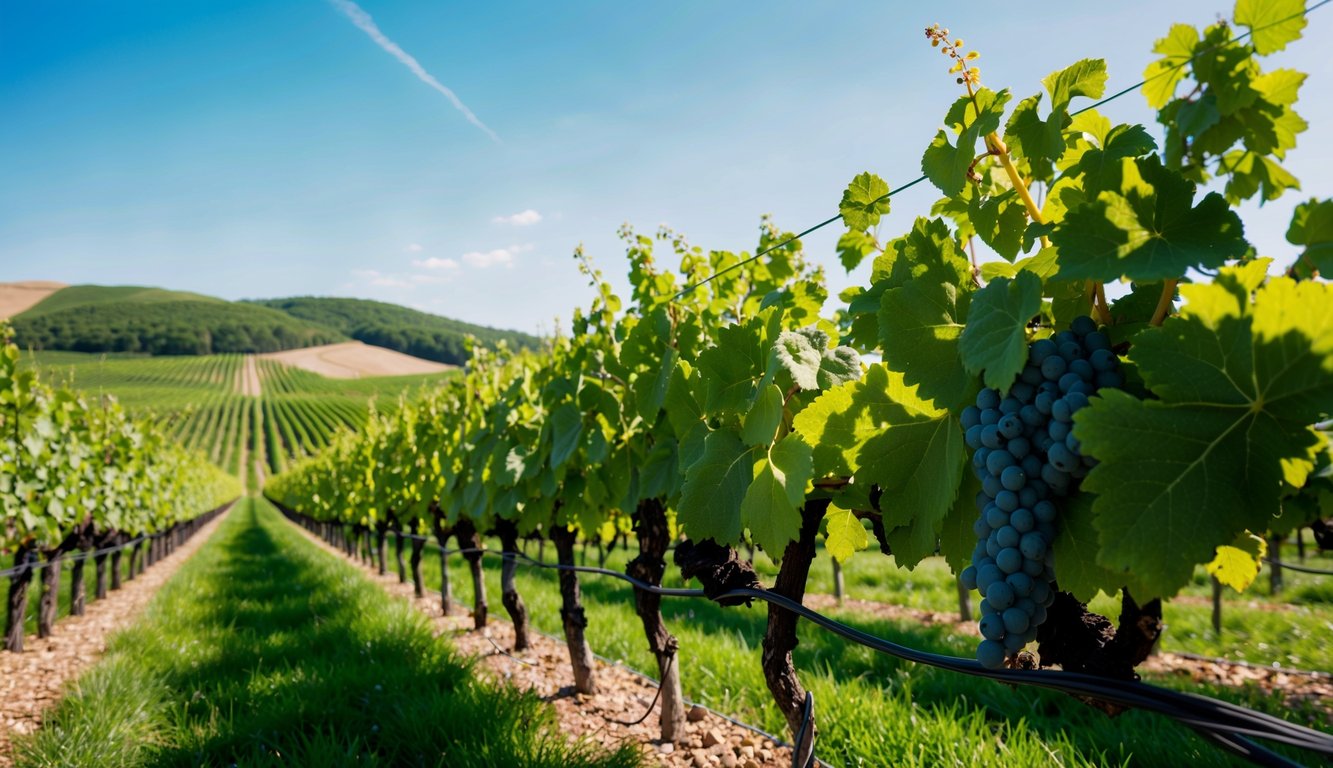
Benziger Tribute Estate offers a premium biodynamic wine experience. This Sonoma Valley vineyard practices eco-friendly farming methods to produce high-quality wines.
The Tribute blend is a standout in Benziger’s portfolio. It combines Cabernet Sauvignon, Cabernet Franc, Merlot, and Petit Verdot grapes. You’ll notice rich aromas of raspberry, cranberry, and cocoa powder.
When you sip this wine, expect flavors of currant, cassis, and black pepper. The complex taste profile comes from Benziger’s commitment to biodynamic practices.
Benziger’s green farming techniques go beyond organic. They focus on creating a balanced ecosystem in the vineyard. This approach leads to healthier grapes and more flavorful wines.
You can visit the Benziger estate for a behind-the-scenes look at their winemaking process. The Tribute Tour offers an in-depth experience of their biodynamic methods.
Consider cellaring this wine for a few years to enhance its flavors. When you’re ready to enjoy it, pair it with a coffee-crusted grilled ribeye for a delightful culinary experience.
Understanding Biodynamic Wine
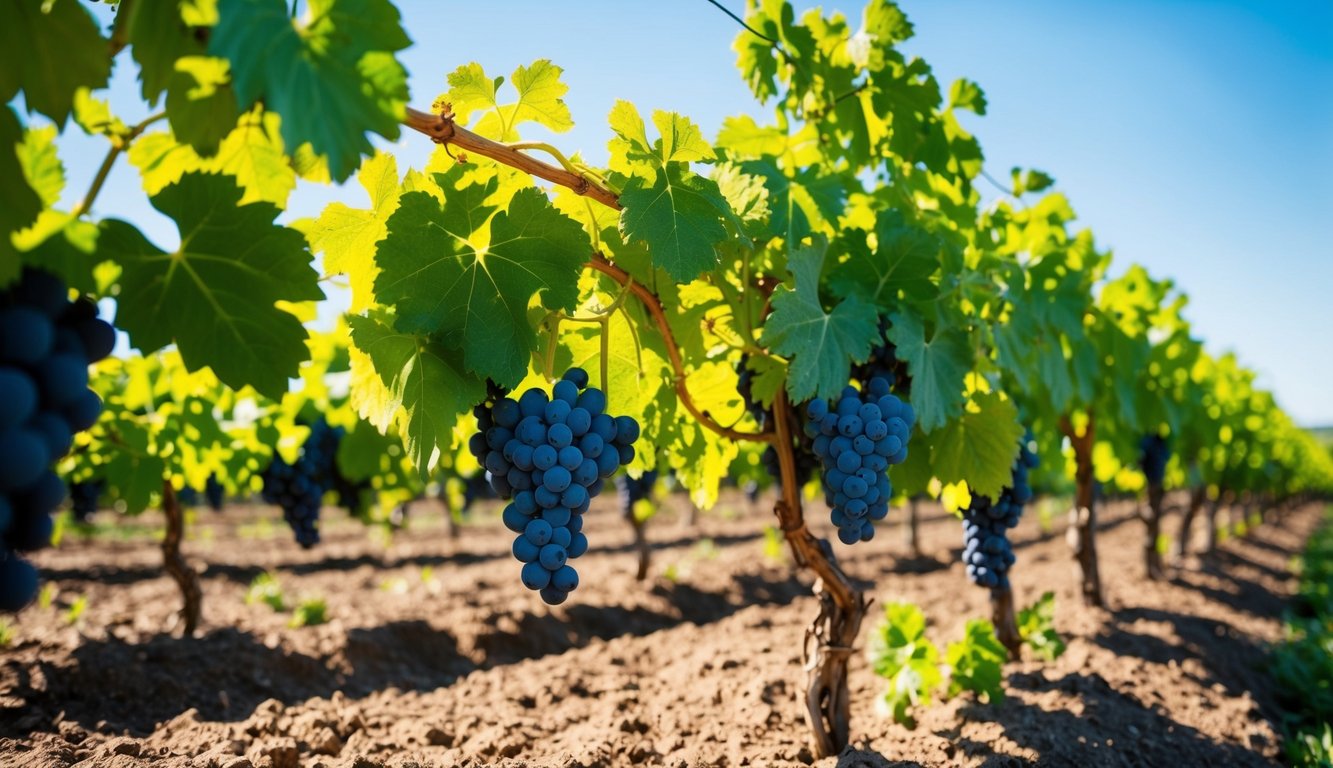
Biodynamic wine offers a unique approach to winemaking that goes beyond organic practices. It aims to create a balanced ecosystem in the vineyard and align farming activities with natural cycles.
History and Philosophy
The concept of biodynamic farming was introduced by Rudolf Steiner in 1924. He viewed farms as living organisms that should be self-sustaining. This philosophy sees vineyards as part of a larger system connected to cosmic forces.
Biodynamic winemakers believe in the interconnectedness of soil, plants, animals, and celestial bodies. They use special preparations made from natural materials to enhance soil and plant health. These include herbs, minerals, and animal products.
The biodynamic calendar plays a key role. It divides days into four categories: root, fruit, flower, and leaf days. Farmers use this to time their activities in the vineyard.
Biodynamic Farming Practices
Biodynamic vineyards focus on creating a diverse ecosystem. You’ll often see:
- Cover crops between vine rows
- Farm animals grazing in the vineyard
- Composting and natural pest control methods
Special preparations are a hallmark of biodynamic farming. These include:
- Horn manure (500): Cow manure fermented in a cow horn
- Horn silica (501): Ground quartz packed into a cow horn
Farmers spray these preparations in tiny amounts to boost soil and plant health. They also use herbal teas as natural fertilizers and pest deterrents.
Biodynamic practices aim to produce wines that truly reflect their terroir. Many wine lovers believe these methods result in more vibrant and expressive wines.
Health Benefits of Biodynamic Wines
Biodynamic wines offer potential health benefits due to their natural production methods and lack of additives. They may provide nutritional value and contain fewer artificial ingredients compared to conventional wines.
Nutritional Profile
Biodynamic wines contain natural compounds that may boost health. Resveratrol, found in red wine, is linked to heart health and longevity. These wines often have higher levels of antioxidants compared to conventional wines.
The grapes used in biodynamic wines are grown without synthetic pesticides. This can lead to higher nutrient content in the final product. Some biodynamic wines may have more vitamins and minerals than their conventional counterparts.
Moderate consumption of biodynamic red wine could support gut health. Studies show red wine drinkers have more diverse gut microbiomes than non-drinkers. This diversity is associated with better overall health.
Low Additives and Natural Fermentation
Biodynamic wines use natural fermentation processes. This means there are fewer artificial additives and preservatives in your glass. The result is a purer product that your body may process more easily.
Many people find they experience fewer headaches or allergic reactions when drinking biodynamic wines. This could be due to the absence of added sulfites, a common wine preservative.
The natural fermentation process may also increase the bioavailability of nutrients in the wine. Your body might absorb these beneficial compounds more easily from biodynamic wines.
While biodynamic wines offer potential benefits, remember that drinking in excess can negate any health advantages and lead to negative effects.
